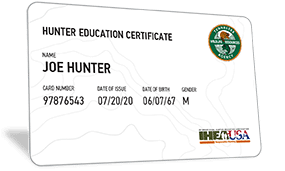
AGE REQUIREMENTS FOR TENNESSEE HUNTERS
Any person born on or after January 1st, 1969 must complete a state-approved hunter education course and obtain a Hunter Education Card to hunt legally within the state of Tennessee.
Excellent!
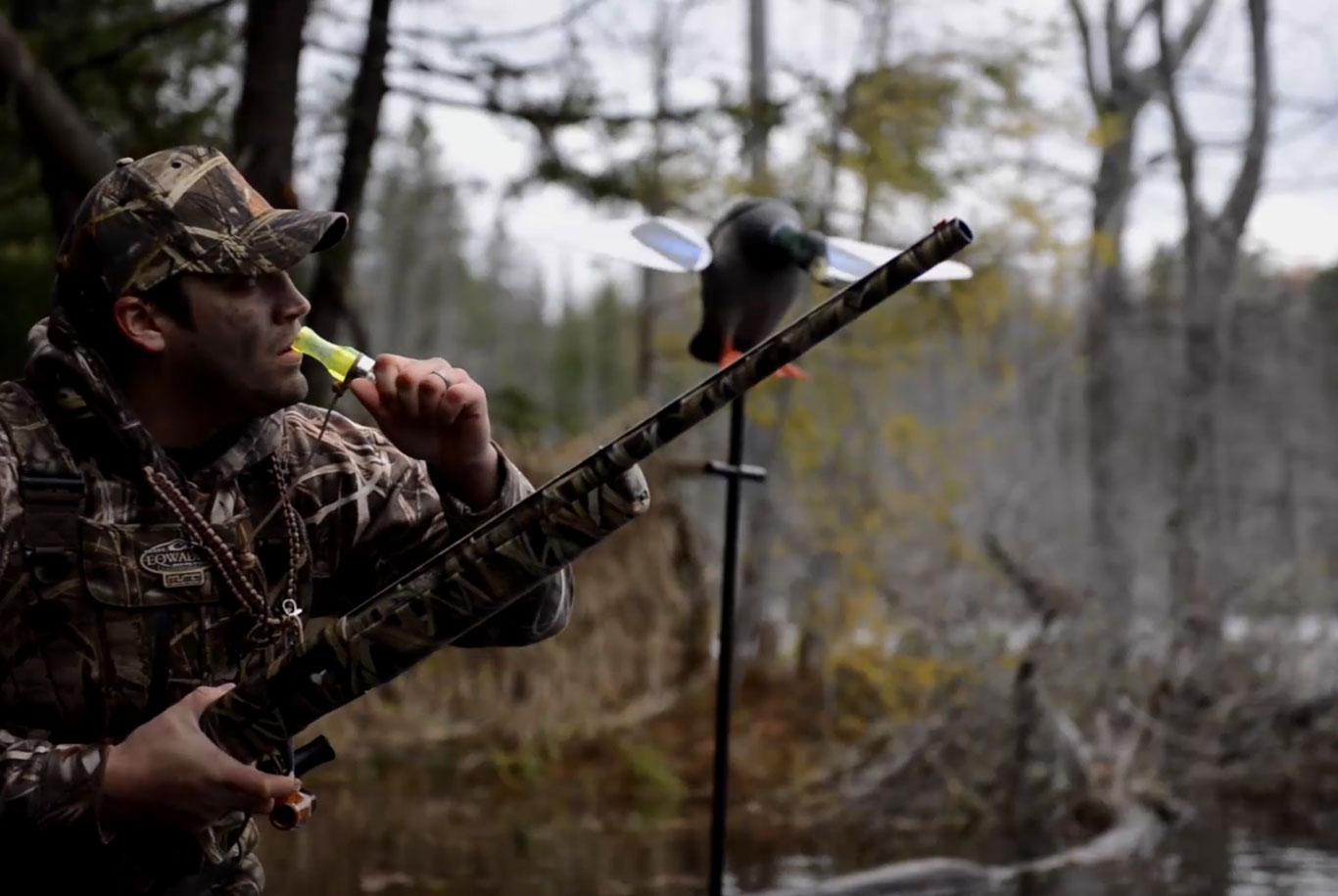
![]()
OFFICIAL TENNESSEE HUNTING COURSE
The Texas HUNTINGsmart! Hunter Safety Course is approved and accredited by the Tennessee Wildlife Resources Agency. With more than 3,000 Five Star Reviews, we’re proud to be recognized as North America’s provider of online courses for hunting, boating, paddling, off-roading and snowmobiling.
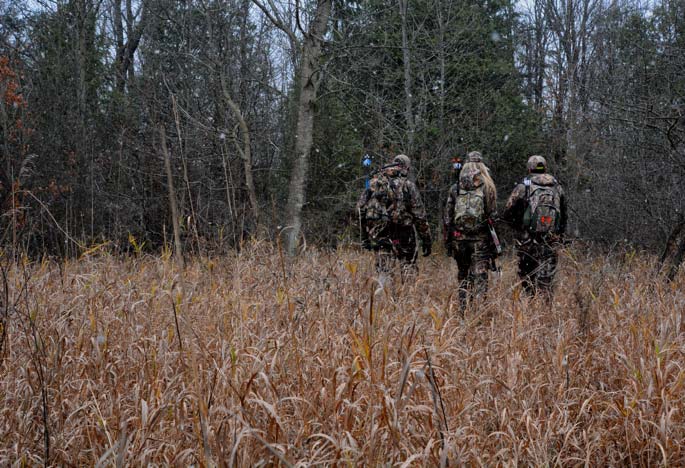
![]()
INTERNATIONAL HUNTER EDUCATION ASSOCIATION APPROVED
The HUNTINGsmart! Tennessee Hunter Safety Course is accredited and approved by the International Hunter Education Association and recognized by the National Shooting Sports Foundation. IHEA develops education standards for hunter safety and coordinates with hunting law administrators in all 50 states and U.S. territories.

Watch, Listen & Learn
Take the course anywhere, on any device, at any time.
HUNTINGsmart!'s Tennessee Hunter Education Course is designed for all ages and skill levels. Our animated, narrated and live action videos guide your learning experience and help you pass. Study from your Smartphone, Tablet or Desktop and switch between devices at any time. HUNTINGsmart! automatically tracks your progress so you can start, stop and study at your own pace.

TENNESSEE HUNTING EDUCATION REQUIREMENTS
WHAT IS A TENNESSEE HUNTER EDUCATION CARD
A Tennessee Hunter Education Card proves that you’ve obtained the knowledge needed to hunt safely, responsibly, and ethically, within the state of Tennessee. Any person born on or after January 1st, 1969 must obtain the card, in order to hunt legally within the state.
WHERE CAN I GET MY TENNESSEE HUNTER EDUCATION CERTIFICATE?
You can obtain your Tennessee Hunter Education Card by completing a Tennessee Wildlife Resources Agency (TWRA) approved course. Courses can be taken either online or in-person, depending on your preference. Hunters who are less than 21 years of age will also be required to complete an in-person field day to be certified.
Traditional Classroom Course Option
Hunters may choose to complete an in-person classroom course and field day to obtain a Hunter Education Card. The classroom course includes a minimum of 10 hours of in-class study and a 100 question final exam.
Online Course – 21 years of age or older:
Hunters who are 21 years of age or older can obtain their Hunter Education Card entirely online if they choose. Online courses typically take about 4-6 hours to complete. Students are issued a temporary Hunter Education Card upon completion.
Hunters who complete the online hunter education course, and are 21 years of age or older, must also apply for a TWRA Field Day Course Exemption. Exemption application forms must be completed and mail to the TWRA with requirements payment. Once the application has been processed, the TWRA will mail the permanent Hunter Education Card within 3-5 days.
Online Course – Under 21 Years of Age
Hunters who are less than 21 years of age may choose to complete the online Hunter Education Course. Upon completion of the online portion, the student will be required to complete an in-person field day. Once both the online course and field day have been successfully completed, the hunter will receive a permanent Hunter Education Card
HOW OLD DO I HAVE TO BE TO GET A HUNTER EDUCATION CERTIFICATE IN TENNESSEE?
You must be 9 years of age or older to obtain a Hunter Education Card within the state of Tennessee. While hunters who are less than 9 years of age are not required to get certified, they are still permitted to hunt so long as they are supervised by a certified hunter who is 21 years of age or older. The supervisor must be in a position to take immediate control of the youth’s hunting device.
AGE AND SUPERVISION REQUIREMENTS
Hunters who are less than 10 years of age are not required to obtain a Hunter Education Card however, they must be supervised by a certified hunter who is 21 years of age or older. The supervisor must be in a position to take immediate control of the youth’s hunting device.
Apprentice Hunting Programs
Hunters who are 10 years of age or older who have not completed a Hunter Education Course may choose to obtain an Apprentice Hunting License. The apprentice license allows the hunter to participate in hunting, without a hunter education card, so long as they are under the direct supervision of a certified hunter who is 21 years of age or older.
The Apprentice Hunting license exempts the hunter from the hunter education requirement for a period of one year from the date of purchase. The license type may only be purchased for a maximum of 3 consecutive years.
HOW LONG DOES IT TAKE TO GET MY HUNTER EDUCATION CARD?
It typically takes about 4-6 hours to get your Tennessee Hunter Education Card online.
Who is exempt from having to obtain a Tennessee Hunter Education Card?
- Hunters born prior to January 1st, 1969
- Hunters who are less than 10 years of age
- Hunters who are 10 years of age or older who possess an Apprentice Hunting License, and are supervised by an adult hunter who is 21 years of age or older
Is my Tennessee Hunter Education Certificate valid in other states?
Yes. The Tennessee Hunter Education Card will be accepted in any US state, province, or country which also requires mandatory hunter education, meaning hunters who have obtained their Tennessee Hunter Education Certificate may use it to hunt in other states. This is known as “reciprocity”.
What's the difference between a Hunter Education Certificate and a Hunting License?
A Hunter Education Card proves that you’ve obtained the knowledge you need to hunt safely and ethically in Tennessee, and is different from a Hunting License. A Hunting Licence is similar to a permit and is required to hunt any game animal within the state. Different licenses and permits may be required depending on which game animal is being hunted.

HUNTING LICENSES, STAMPS, AND PERMITS
HUNTING LICENSES
A Hunting License is required in the state of Tennessee to hunt any game animal. There are a variety of license types available depending on your age, residency status, and what type of game you plan to hunt.
Hunting License Exemptions:
- Residents of the state who were born before March 1, 1926
- Military personnel on leave who possess leave papers
- Landowners and their immediate family (spouses and children), who hunt on their own farmland
- Resident grandchildren or great-grandchildren who are under the age of 16, and are hunting on land owned by their grandparents or great grandparents
Additional exemptions may apply – for more information on hunting license exemptions in Tennessee, visit the TWRA website.
HUNTING LICENSE TYPES
Tennessee Resident Hunting License
There are a variety of resident license types available. Resident licenses only may be obtained by legitimate residents of the state. For information on who may obtain a resident hunting license type visit the TWRA Website
Types of resident hunting licenses include:
- Hunting and fishing combination license
- Junior hunt/trap/fish license
- Annual Sportsman License
Non-resident Hunting License
Non-resident hunting license types are available to residents of states other than Tennessee, including:
- Annual junior hunt (all game)
- Annual hunting license (all game)
- Trapping License
- Small Game and Waterfowl License
HUNTING PERMITS
Hunters may be required to purchase a permit, in addition to required licenses, to hunt in specific areas or for specific game animals. Special permits are required for any hunter to take game within a Wildlife Management Area (WMA). Migratory Game Bird permits are also required to hunt any waterfowl or other migratory game bird.
TENNESSEE HUNTER CERTIFICATION AGE REQUIREMENTS

UNDER 10 YEARS OF AGE
Hunters who are less than 10 years of age are not required to obtain a Hunter Education Card however, they must be supervised by a certified hunter who is 21 years of age or older. The supervisor must be in a position to take immediate control of the youths hunting device.

10 YEARS OF AGE OR OLDER
Hunters who are 10 years of age or older, who were born on or after January 1st, 1969, are required to complete a hunter education course, in order to hunt within the state of Tennessee.
Hunters who are 10 years of age or older who have not completed a Hunter Education Course may choose to obtain an Apprentice Hunting License. The apprentice license allows the hunter to participate in hunting, without a hunter education card, so long as they are under the direct supervision of a certified hunter who is 21 years of age or older.
The Apprentice Hunting license exempts the hunter from the hunter education requirement for a period of one year from the date or purchased. The license type may only be purchased for a maximum of 3 consecutive years.

EXEMPTIONS
- Hunters born prior to January 1st, 1969
- Hunters who are less than 10 years of age
- Hunters who are 10 years of age or older who possess an Apprentice Hunting License, and are supervised by an adult hunter who is 21 years of age or older

Tennessee's Hunting Fines

Failure to carry Hunter Education Certificate
Up to $25

Hunting without proper license or permit
Up to $25

Spotlighting deer
Up to $500

Illegal hunting or possession of deer, bear, elk, boar, or turkey
Up to $2,500

Hunting big game during closed season
Up to $500
TENNESSEE HUNTING FAQS
DO I NEED A HUNTING LICENSE TO HUNT WITHIN THE STATE OF TENNESSEE?
Yes. A Hunting License is different from a Hunter Education Card and is required for any person, of any age who hunts within the State of Tennessee. This includes both residents and non-residents. There are a variety of license types available depending on your age, residency status, and what type of game you plan to hunt. Certain exceptions may apply depending on the game animal being hunted. For more information on hunting licenses in Tennesse, visit the TWRA website.
WHAT ARE THE TENNESSEE TAGGING REQUIREMENTS?
Big game animals taken in Tennessee must be tagged and reported at “check-in” stations after they’re killed. Big game animals include deer, elk, bear, and turkey. It’s important for hunters to understand the tagging and/or check-in requirements for the game animal they’re hunting, and to ensure that the animal is tagged and reported properly.
Once you’ve taken a big game animal, it must be checked-in before it can be moved from the area. Hunters may choose to use the TWRA mobile app to electronically tag and check-in their harvest, or may physically tag the animal and check it in before midnight. Tagging and check-in requirements apply to all hunters including hunters who have taken game on their own land and those who are exempt from hunting license requirements.
The following requirements apply when reporting and tagging big game animals:
- Big game must be checked-in by no later than midnight on the day the animal was harvested (the same applies if the animal is being gifted or transported out of state)
- If the animal is being transported before being checked-in a Temporary Transport Tag must be affixed to the animal. The tag can be removed once the animal has been checked-in.
Additional regulations may apply depending on the type of game animal. For more information on check-in requirements visit the Tennessee Hunting and Trapping eRegulations Guide.
WHAT ARE THE HUNTER ORANGE REQUIREMENTS IN TENNESSEE?
Hunter orange must be worn by big game hunters in Tennessee. Anyone hunting big game within the state is required to wear a minimum of 500 square inches of hunter orange on both their head and an outer garment worn above the waist. The outer garment must have orange visible on both the back and front. Turkey hunters participating in hunts proclaimed by the commission, and hunters taking game on their own property are exempt from these regulations.
WHAT ARE THE BAG LIMITS IN TENNESSEE?
Bag limits are imposed on hunters to restrict the number of a particular game animal that can be taken. Bag limits may be daily or seasonal depending on the type of animal. Daily bag limits restrict the number of a specific game animal that may be taken within a day, whereas seasonal bag limits restrict the number of a particular game animal that may be taken by a hunter within the hunting season.
Bag limits may vary annually depending on game species populations. Hunters must understand and follow bag limit restrictions. Violations may result in fines. For more information on bag limits visit the Tennessee Hunting and Trapping eRegulations Guide.

GAME AND NON-GAME SPECIES
GAME SPECIES
Anyone hunting in Tennessee will have a variety of game animals to choose from, and hunting opportunities for all ages, skills levels and hunting interests. The state’s landscape offers a variety of natural habitats and ecosystems for plenty of game animals, including big and small game species, furbearers, upland game and waterfowl.
Game species in Tennessee include:
- Big game including white-tailed deer, bear, elk and turkey.
- Small game including woodcock, rails, coot, snipe and crow.
- Waterfowl and other migratory game birds including ducks, geese, dove and sandhill cranes.
- Furbearers including beaver, bobcat, fox, minc, and coyote among others.
NON-GAME SPECIES
The TWRA defines a nongame species as “any wild mammal, bird, amphibian, reptile, fish, mollusk, crustacean or other wildlife not ordinarily taken for sport, fur, food or other commercial use”. Unless otherwise specified no person is permitted to take, attempt to take, possess or transport any nongame species within the state.
Additionally, some wildlife species in Tennessee may be designated as endangered, protected, or threatened. It is unlawful to hunt any endangered, protected or threatened species within the state. Some examples of these species include various types of bat, the piping plover, and the least tern, in addition various plants, fish, and mussels.
INVASIVE SPECIES
Invasive animals and other pests have been introduced to the United States, including the State of Tennessee, and have become a threat to native wildlife. These animals, plants, fish, and invertebrates typically have no natural predators which can result in rapid spread and population growth. This in turn can seriously harm the state’s lands and waters, and can be detrimental to the health and population numbers of a variety of the state’s native plants and animals. Some common invasive species in Tennessee include Asian Carp, Asian longhorn tick, brown marmorated stink bug, and gypsy moths, in addition to a long list of other plants, animals, fish, insects, and invertebrates.
In order to protect Tennessee’s native plants and animals, invasive species must be controlled and eradicated. Anyone who encounters or suspects that they have encountered an invasive species within the state is encouraged to report the sighting so that it can be monitored and controlled. For information on how to report various types of invasive species in Tennessee visit the US Department of Agriculture, National Invasive Species Information Center.

TENNESSEE HUNTING SEASONS
Hunting seasons and dates may change annually per game animal, depending on a variety of factors. Season dates are further broken out, region or Hunt Units or “Zones”, depending on the game animal type. Additionally, seasons are often categorized by firearm time, including archery, firearms, and muzzleloader or “primitive” firearms seasons.

White-tailed Deer
Deer seasons in Tennessee are organized by firearm type, hunt units, hunter and age land type. Seasons typically begin as late August and continue through to early January, depending on the seasons. Seasons may be as short as 2 days or may be as long as 3 weeks depending on the season type. Bag limits for deer may vary depending on the type of deer (antlered vs antlerless).
Learn more about hunting deer in Tennessee.

Bear
Bear seasons are limited in Tennessee. The season typically only lasts for a few days in the fall and ends once the quota for the season has been reached. Bear hunting season is only permitted in a small number of counties, and license availability may be limited.
Learn more about hunting bear in Tennessee.
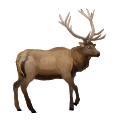
Elk
Elk seasons in Tennessee typically begin in late September and end in early-mid October. Elk hunts are organized within a small number of Elk Hunt Zones, and permits are limited.
Learn more about hunting elk in Tennessee.

Small Game
Small game seasons in Tennessee include grouse, rabbit, quail, and various types of squirrel. Seasons date vary depending on the type of small game, with the earliest season (for squirrel) beginning in August and ending in February.
Learn more about hunting small game in Tennessee.
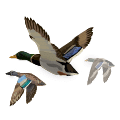
Ducks
Duck seasons dates in Tennessee vary depending on a variety of factors including the species and the license type (ex. Youth vs. vet seasons). Duck season typically begins in September, with additional season dates in November and February.
Learn more about hunting ducks in Tennessee.
HUNTING ON PUBLIC OR PRIVATE LAND
PRIVATE LAND
Much of the land in Tennessee is privately owned. Hunters can typically freely take game animals hunted on their own private property, or may seek permission from a landowner to hunt on private property. Hunters who wish to take game on privately owned land must follow state hunting regulations as well as any regulations specified by the landowner. Hunters must ensure they respect the rights and property of the landowner at all times.
SPECIAL REGULATIONS AREAS
Certain lands within the state of Tennessee may have additional regulations that apply to hunters or other recreational land users – this may include wildlife refuges and federally owned lands.
Regulations may be imposed on vehicle use, firearm types, use of dogs to hunt certain game animals, campsite regulations, and baiting just to name a few. It is critical that hunters understand and follow any additional regulations that may apply in these areas in order to ensure that they continue to be open to hunting.
PUBLIC LAND
The state of Tennessee offers over 7000 acres of public lands which are open to hunters including lands managed by the TWRA, designated Wildlife Management Areas, State Natural Areas and Wildlife Refuges. Hunters should note that public hunting lands may be restricted – this may include firearms restrictions and bag limits. Not all game animals may be hunted within public hunting areas, and regular seasons dates still apply. Hunters should learn about the rules and regulations the apply within the region they plan to hunt prior to heading to the area.
Some of the land within the state is only available for hunters as a result of cooperative agreements between the TWRA and private landowners. Hunters who plan to hunt these areas must abide by any regulations stipulated by the landowner.
For additional information on public hunting areas within the state, including contact information and public land regulations, visit the Tennessee Hunting and Trapping eRegulations Guide.
Wildlife Management Areas
What Are Wildlife Management Areas?
The Tennessee Wildlife Resources Agency manages nearly 100 Wildlife Management Areas (WMAs) and wildlife refuges across the state – some of which are larger than 650,000 acres. These spaces are open to public hunting and trapping, in addition to various other recreational outdoor activities.
WMA Regulations
Specific rules and regulations apply to hunters, trappers and other recreational users within WMAs. It’s important for hunters to understand the regulations that apply within various WMAs, as they may vary by county. Some example of additional regulations that apply in WMA’s include:
- Bag limit regulations
- Alcohol restrictions
- Firearm type and transportation restrictions, within certain areas
- Motorized vehicle restrictions
- Varying designated hunting hours
The Volunteer State. Ready and rarin’ to go.

Where to Hunt in Tennessee
With plenty of game animals to choose from, and hundreds of thousands of acres open to hunting, you’re sure to find plenty of hunting and trapping opportunities in Tennessee. Some of the most popular game animals to hunt within the state include deer, turkey, squirrel and bear. Deer, particularly bucks, within the state have been known to be over hunted within the state, however stricter bag limits have since been imposed. While the state isn’t necessarily known for trophy 10-point bucks, the overall deer population is still plentiful. Hunters looking for top deer spots should head towards central Tennessee, and counties bordering the Mississippi River.
Hunters looking for larger game will find excellent bear hunting opportunities – with the state permitting large bear quotas annually. Hunters can find excellent bear hunting opportunities in the eastern portion of the state. While hunting is typically strictly prohibited within the boundaries of national parks, there are a few open to hunting including South Fork National Forest, Great Smoky Mountains National Park, and Cherokee National Forest.
If you’re up for the additional challenge of hunting small stealthy game, squirrel hunting is another great option in Tennessee. The species is plentiful within the state, allowing for long seasons and large bag limits. Successful squirrel hunting can be accomplished in most of the state’s designated hunting zones and WMA’s, with most hunters having a lot of success in the fall season.
